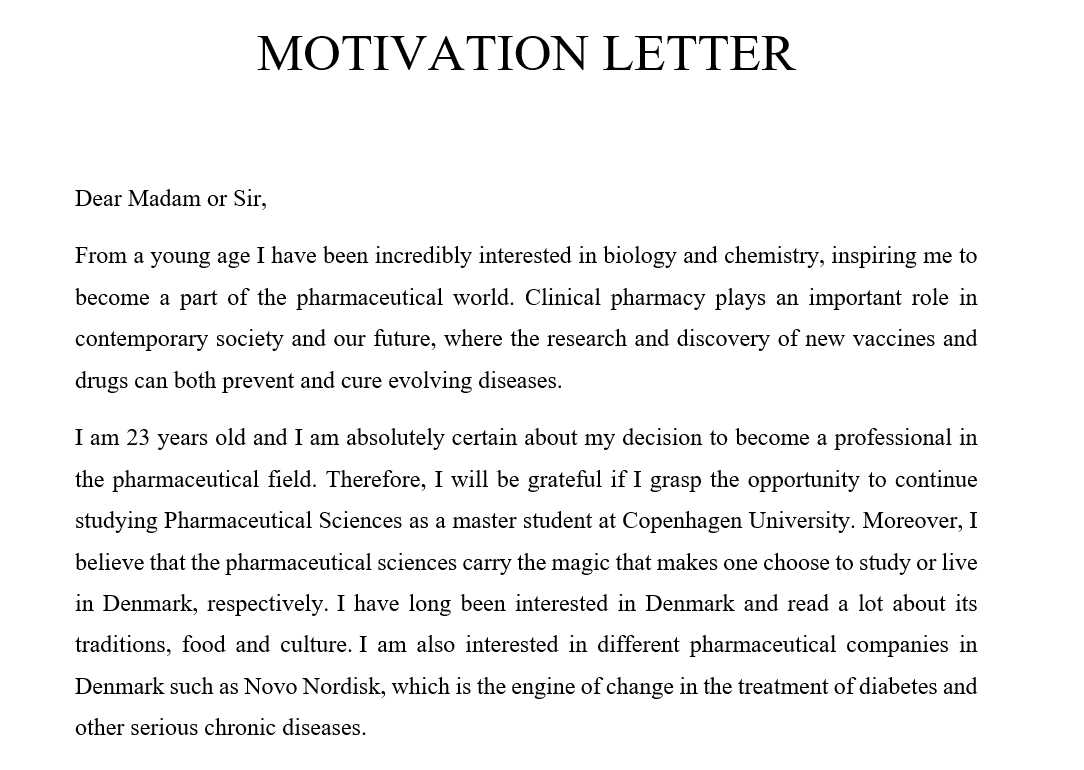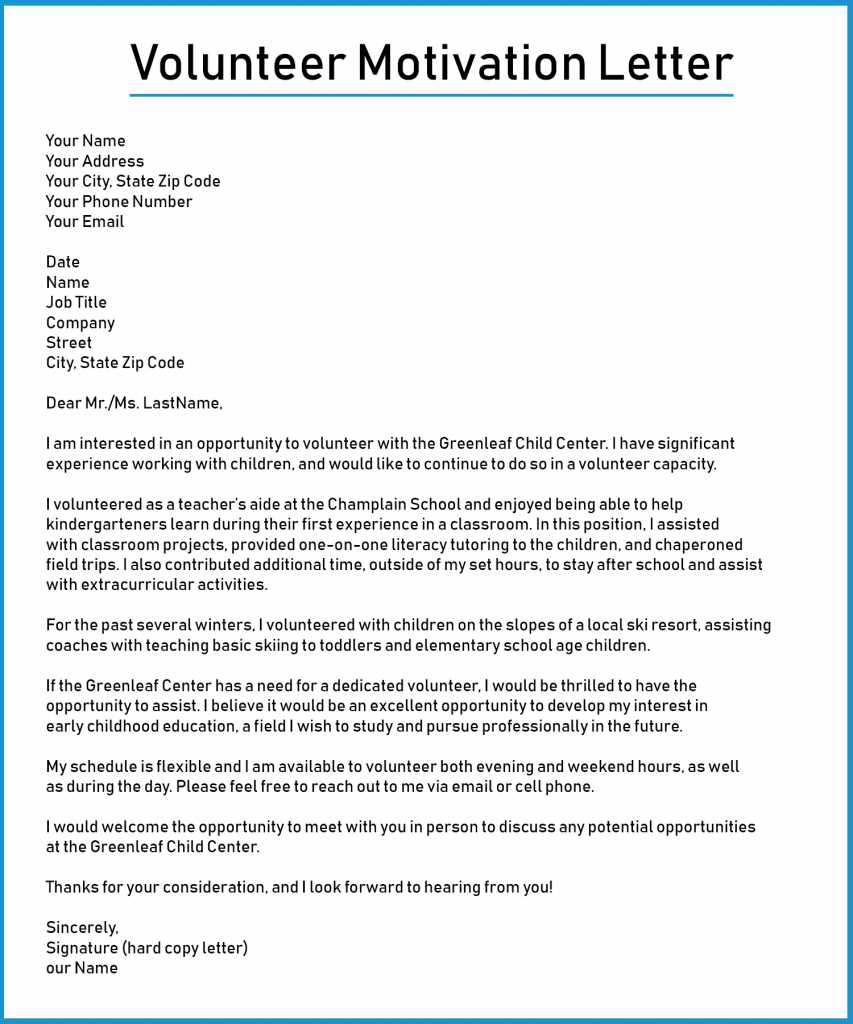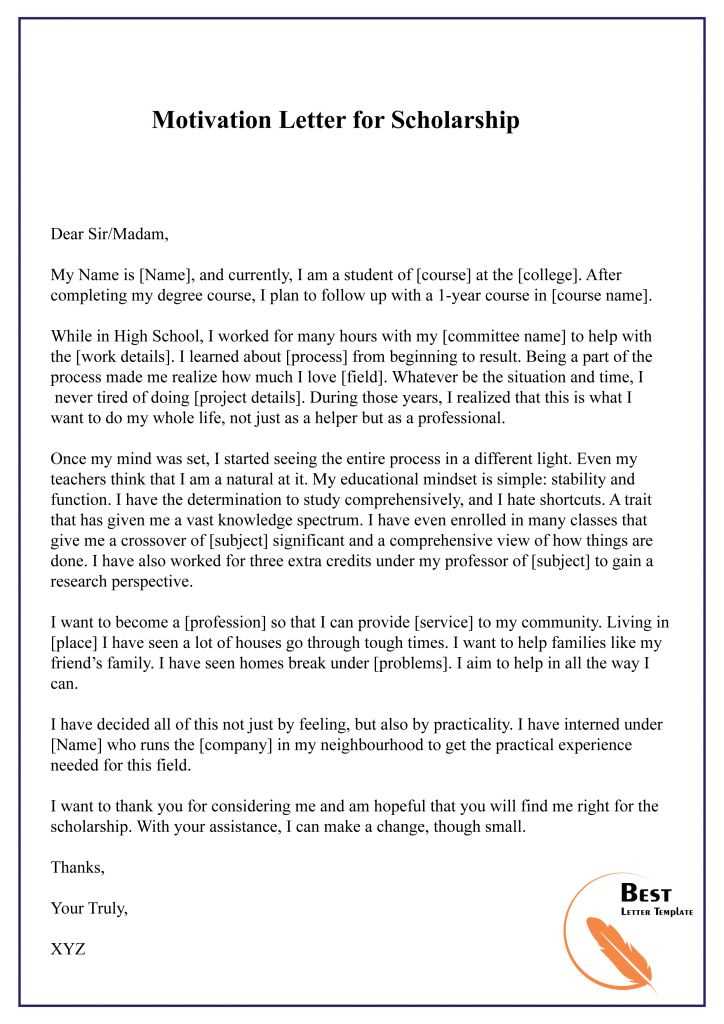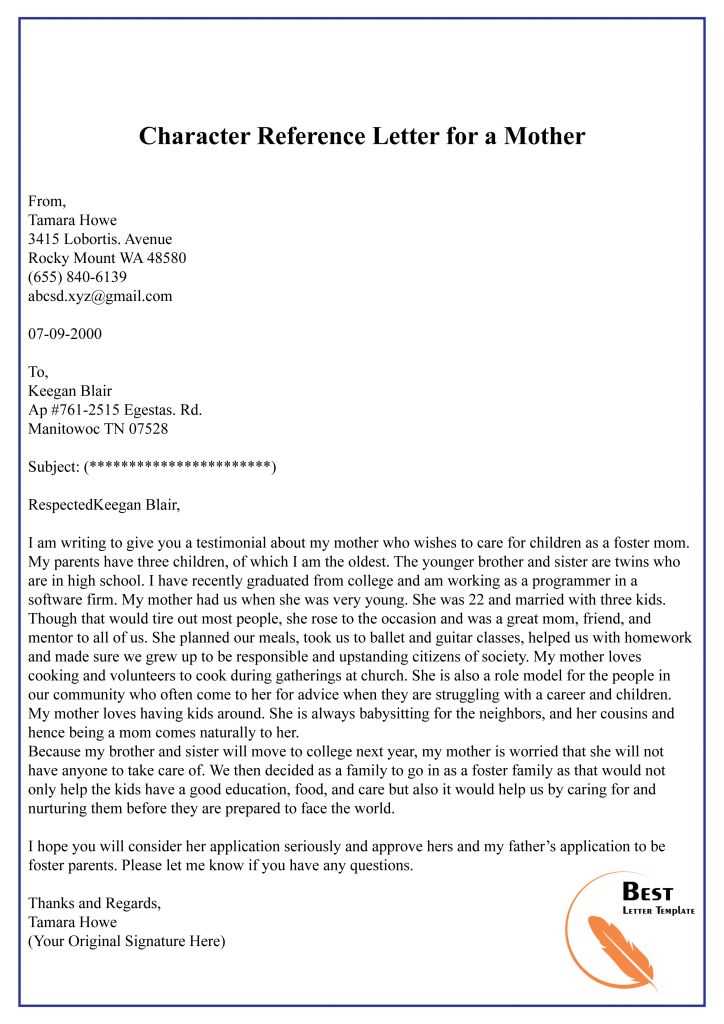Motivation Template Letter to Boost Your Success

When applying for a job, academic position, or any opportunity that requires a personal appeal, it’s essential to present yourself in a way that highlights your passion, goals, and why you’re the right fit. A well-structured document can make a significant impact on your application, showcasing your personality and commitment to the cause. This section will guide you in creating a powerful and effective introduction for such opportunities.
Why It’s Important to Stand Out
Standing out among many applicants is crucial. A well-written personal appeal can be your best asset. It is not just about stating your qualifications but demonstrating your enthusiasm and suitability. Tailoring the message to the specific opportunity helps the reader understand why you’re a strong candidate.
Key Aspects to Focus On
- Introduction: Start with a compelling opening that captures attention and shows your enthusiasm.
- Relevant Experience: Highlight your key skills and experiences that align with the role or program.
- Purpose: Clearly express your goals and explain why you are passionate about this opportunity.
Crafting the Right Tone

Using the right tone is crucial for making a lasting impression. It’s important to strike a balance between professionalism and a personal connection. Be respectful, yet confident in your abilities. Show the reader that you are both capable and eager to take on new challenges.
Common Mistakes to Avoid
There are some common pitfalls to watch out for when composing this type of document. Avoid sounding too generic or too boastful. Ensure that your message is clear and concise, without being overly complicated. Focus on the specific qualities and skills that make you the ideal candidate for the opportunity.
Practical Example

Here’s an example of how to present your key qualifications effectively:
- Start with a strong opening, such as: “With a background in environmental science and a passion for sustainability, I am eager to contribute my expertise to your team.”
- Follow with your experiences: “In my previous role at XYZ Corporation, I led a project that resulted in a 20% decrease in waste production.”
- Conclude with your goals: “I am eager to apply my skills in a dynamic environment like yours, where I can continue to make a meaningful impact.”
By following these guidelines and avoiding common mistakes, you’ll be able to create a powerful introduction that stands out and leaves a lasting impression.
Why a Personal Statement Matters
How to Structure Your Application
Key Components of an Effective Appeal
Tips for Crafting a Persuasive Message
Common Mistakes to Avoid in Applications
Examples of Powerful Personal Statements

A well-crafted personal appeal plays a crucial role in your application process. It offers a unique opportunity to introduce yourself beyond your qualifications and connect on a personal level with the reader. This document is often the first impression you make, and it can significantly influence the outcome of your candidacy.
Structure and Clarity are vital when creating a strong appeal. The way you organize your message helps the reader follow your thoughts and understand your intentions clearly. Begin by introducing yourself, followed by detailing your qualifications, experiences, and your genuine interest in the role or opportunity.
Key Components of an effective appeal should include an engaging introduction, a summary of your relevant background, and a clear statement of your objectives. This section should highlight your strengths and showcase why you’re a good fit, ensuring the reader sees the value you bring.
Tips for crafting a persuasive message include using confident language, showing enthusiasm for the opportunity, and making sure your skills align with the position. Focus on demonstrating your passion and explaining why you are uniquely suited for the role, making it clear that you understand the requirements and can meet them effectively.
While writing, avoid common pitfalls. Don’t be vague or overly general, and steer clear of overly formal language that could make your appeal sound impersonal. Keep your message focused and avoid repetition that can weaken your argument.
Looking at examples of strong personal statements can help you understand how to structure your own appeal. A good example includes a direct and engaging opening, a brief but strong summary of achievements, and a concluding paragraph that reaffirms your excitement for the opportunity.